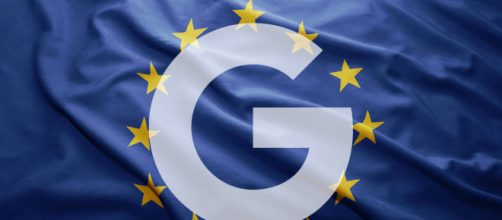Regulators in the European Union have hit search giant Google with a €1.49 billion fine (around £1.28 billion) for antitrust practices. Passing the verdict, EU officials have stated that the firm has abused its dominant market position by blocking access to third-party ad providers on websites.
Google makes a very large proportion of its money from advertising revenue. In the third quarter of 2018, US$24.1 billion of its US$27.77 billion earnings were made this way.
In this case, Google has been accused of aggressively asserting its market dominance by including a clause in AdSense contracts that block third-party search results.
A large number of sites include an in-built search function, which displays sponsored hits alongside regular search results.
Google's EU fine follows inclusion of restrictive AdSense clauses
It was discovered that Google had breached EU law by including restrictive agreements which meant that its rivals such as Microsoft and Yahoo were prevented from appearing on AdSense results. Where websites use in-built search functions, Google’s own sponsored content would be the only results shown.
European Commissioner for Competition Margrethe Vestager stated, "Google has cemented its dominance in online search adverts and shielded itself from competitive pressure by imposing anti-competitive contractual restrictions on third-party websites.
This is illegal under EU antitrust rules."
In 2017, Google was issued a €2.42 billion fine related to its shopping search results. In 2018, it received another penalty for €4.34 billion, this time for unfairly promoting itself through its presence on Android systems.
Google continues to post huge ad profits
Given Google’s enormous advertising profits and the number of fines it has received in quick succession, the company would appear to be undeterred in continuing to assert its dominance. Taking its third-quarter ad revenues from 2018, the latest fine is only about 1/14 of those particular profits.
The third @Google case: @Google is fined €1,49bn for illegal practices in search advertising brokering to cement its dominant market position. They shouldn’t do that - it denied consumers choice, innovative products and fair prices.
— Margrethe Vestager (@vestager) March 20, 2019
Kent Walker, Google’s Senior Vice President for Global Affairs, has stated, “We’ve already made a wide range of changes to our products to address the commission’s concerns.
Over the next few months, we’ll be making further updates to give more visibility to rivals in Europe."
Google remains by far the world’s most popular search engine. In January 2019, Statista put Google at an 89.95 percent rate of the global market share from desktop computer searches. Microsoft’s search engine Bing came second at 3.99 percent, followed by Yahoo at 2.84 percent and then Chinese firm Baidu at 0.56 percent.
Huge fines for global tech corporations have been frequent in the past few years. In 2016, Google was heavily fined by UK tax authorities. In 2017, Facebook received a penalty of $122 million after accusations of misleading practices relating to its purchase of WhatsApp.


